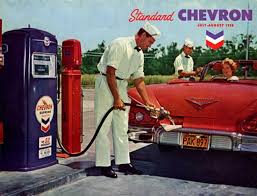
“It’s not the doctors, or the nurses, or the people that actually work,” said Butler. “It’s the system. It’s the billing system that they all operate under.” – Josh Butler
A look at a hospital bill for an uninsured Texan
by David Furtado
Monday, September 21st 2020
Healthcare is a struggle for so many Texans who are uninsured. They’re billed thousands of dollars for something that would cost an insured patient a fraction of that, but according to Josh Butler with Butler Benefits & Consulting, it’s not the fault of your doctor.
“It’s not the doctors, or the nurses, or the people that actually work,” said Butler. “It’s the system. It’s the billing system that they all operate under.”
That billing system has caused so many Americans to file for bankruptcy. Butler showed us a medical bill of an uninsured Texan, to show how expensive a simple visit to the emergency room can be.
“He slips, and stumbles and hits his nose, cut his nose open real bad, so he goes to the emergency room,” said Butler.
The bill featured 4 viewings of what Butler says is single x-ray, except it’s marked up over 1,000 percent, at $804.
“Level 4 ER visit. $3500. Just to walk in the door. This goes on at every hospital in the country,” said Butler.
Butler says the only people to pay that full price are the uninsured. If it’s unpaid, it’s sold to collections for 40 percent of the debt, but they still get to charge the full amount.
“They’ll harass him, for a long time and if they don’t get anything out of him, they will sell it again. That’s what we call churn and a lot of times, this will churn and churn and churn to where literally, companies are buying and selling debt for a penny on the dollar,” Butler said.
It’s the inflated cost of care, Butler says, that makes it so hard. 25 percent of the country’s GDP goes to healthcare, more than any other industrialized nation in the world.
“We call this the greatest heist ever perpetuated in American history,” said Butler. “This is where people’s money goes.”
It’s not just the uninsured who pay the inflated costs. Cities and companies also pay them at a half off discount. Butler stresses though, that he doesn’t hope for hospitals to lose money, adding they’re a societal need.
 “There’s a reason that a gas station owner, can’t charge you 30 dollars gallon of gasoline when there’s a category 5 hurricane fixing to hit. That’s price gouging. That’s basic consumer protections. We don’t have any consumer protections in healthcare,” said Butler.
“There’s a reason that a gas station owner, can’t charge you 30 dollars gallon of gasoline when there’s a category 5 hurricane fixing to hit. That’s price gouging. That’s basic consumer protections. We don’t have any consumer protections in healthcare,” said Butler.
So what do we do? Butler says health insurance is important, but it should be used similar to car insurance; for the big things we can’t afford, while small general health things like an annual checkup can be paid for out-of-pocket. Butler adds, sometimes asking questions about the necessity of tests or treatment can help lower costs.
Butler says he’s working to be part of the solution, aiming to help clear $1.5 million of medical debts for some 2,400 residents in Potter and Randall counties, but believes a long-term solution will take a team effort.

